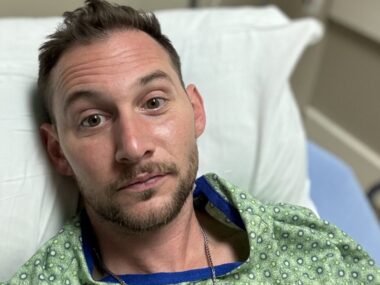JK Rowling Donates £15.3M to UK Clinic Working in MS Research, Treatment Discovery
Written by |

J.K. Rowling, the author of the Harry Potter series, has donated £15.3 million — more than $19 million — to the Anne Rowling Regenerative Neurology Clinic to support research, create new facilities, and help develop new treatments for people with multiple sclerosis (MS) and other neurodegenerative disorders.
Located at The University of Edinburgh, the clinic is named for Rowling’s mother, who died of MS at age 45. It was set up with £10 million donation from Rowling in 2010, and works as an integrated care and research facility, one that offer patients the opportunity to participate in clinical trials.
“I am delighted to now support the Anne Rowling Regenerative Neurology Clinic into a new phase of discovery and achievement, as it realises its ambition to create a legacy of better outcomes for generations of people with MS and non-MS neurodegenerative diseases,” Rowling said in a press release.
Nothing the clinic’s role in the recent progress in regenerative neurology, Rowling added that she has “great pride” in both its “lofty ambitions” and its “practical, on the ground support and care for people with MS, regardless of stage and type.”
“I’ve heard at first-hand what a difference this support can make,” she said.
Peter Mathieson, the university’s principal and vice-chancellor, added: “We are immensely honoured that J. K. Rowling has chosen to continue her support for the Anne Rowling Regenerative Neurology Clinic. This inspiring donation will fund a whole new generation of researchers who are focussed on discovering and delivering better treatments and therapies for patients.”
Studies into “invisible” MS symptoms, such as cognitive impairment and pain, and advances in individualized care are among the work supported by this donation.
“This incredibly far-sighted and generous donation will unlock the potential of personalised medicine for people with MS in Scotland and further afield,” said Siddharthan Chandran, a neurologist and the clinic’s director.
In addition to MS, the clinic works in research and treats patients with amyotrophic lateral sclerosis, Parkinson’s, and other forms of dementia.
“Our research is shaped by listening to, and involving, individuals who are living with these tough conditions,” Chandran concluded.


